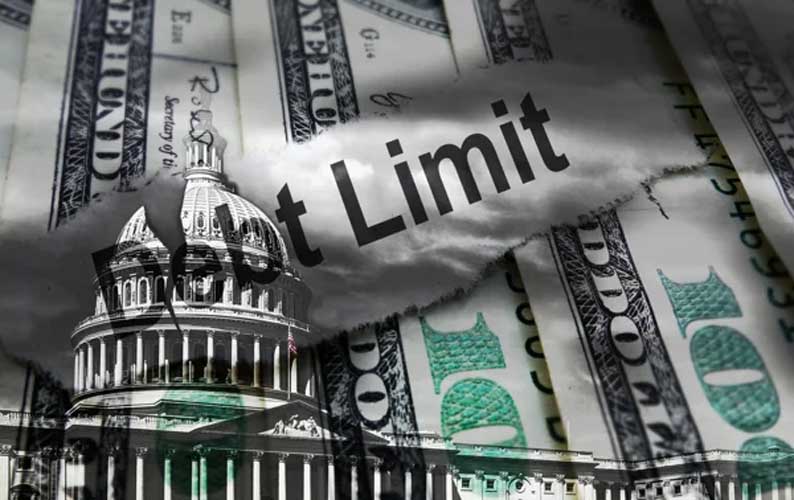By Craig Erlam
A debt ceiling fiasco was averted late in the day and markets are ending the week on a positive note, as traders turn their attention to the US jobs report.
Rarely do you have a situation in which everyone appears to be in agreement, but we’ve seen over the last few weeks that no one at any stage thought a US default was a realistic possibility. Brinkmanship in Washington is part of the theatre of the negotiations, but the idea that Congress would ever intentionally allow the US to default is ridiculous.
Still, there seems to be some sense of relief in the markets that any risks, however minuscule, have been cast aside, leaving investors to focus on what really matters at this stage; inflation, interest rates, and the economy.
Signs of weakness in US labour market?
The US jobs report was always the main event this week and depending on the numbers, we may well see that play out in the markets. We heard some positive noises from the Fed in recent days around the prospect of a pause in order to allow more time for the data to moderate and be fully analysed, but even so, another red hot jobs report on Friday may be impossible to ignore.
For the Fed to feel confident that inflation is heading back to 2% and sustainably, we need to see some weakness in the labour market. That means much fewer new jobs for a period, more modest wage growth, and in all likelihood, a slight increase in unemployment. Higher participation wouldn’t hurt either.
We’re not going to get all that on Friday, but an NFP closer to 100,000 and wage growth of 0.3% or lower may give policymakers the confidence to pause in two weeks, assuming the inflation data doesn’t bring any further nasty surprises.
Oil edges higher ahead of OPEC+
Oil prices are edging higher into the end of the week, perhaps a sign of nerves appearing before the OPEC+ meeting this weekend.
While there seems to be a widely held view that the group won’t announce any further cuts, the same was true at the last meeting and then the group announced cuts of roughly another million barrels.
And while there have been comments to suggest the alliance isn’t likely to cut output this weekend, it’s hard to ignore the warnings from the Saudi energy minister to “watch out”, threatening more “ouching” for short speculators. This may be playing into the mind of traders fearing another surge on the open next week.
Will jobs report push gold above $2,000?
Gold has had a few good days this week, buoyed by an easing of yields which may be related to the debt ceiling deal, but I expect it probably has more to do with the Fed commentary on the merits of pausing in June, alongside much better eurozone inflation data.
Whether that will be enough to see it break above the $2,000 barrier will probably depend on how much of a helping hand it gets from the jobs data.
A weak report could push yields lower and give gold another boost, while another hot set of numbers could bring an abrupt end to this recovery rally.
Lively end to week for bitcoin
It’s been an interesting week for bitcoin which started with a rally to $28,000 before slipping back to $27,000, roughly where it was at this time last week.
Any theories that it could benefit from US debt ceiling talks failing have been cast aside for now and it’s the jobs report that will likely determine how the week ends for the cryptocurrency.
A move back below $26,000 could be a real blow, with that level having held when tested on a couple of occasions last month.
Craig Erlam is Senior Market Analyst, UK & EMEA at OANDA
Opinions are the author’s, not necessarily that of OANDA Global Corporation or any of its affiliates, subsidiaries, officers or directors. Leveraged trading is high risk and not suitable for all. Losses can exceed investments.







